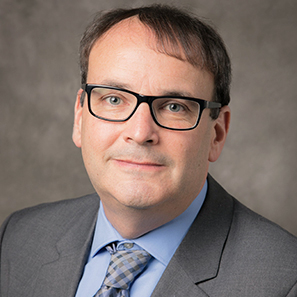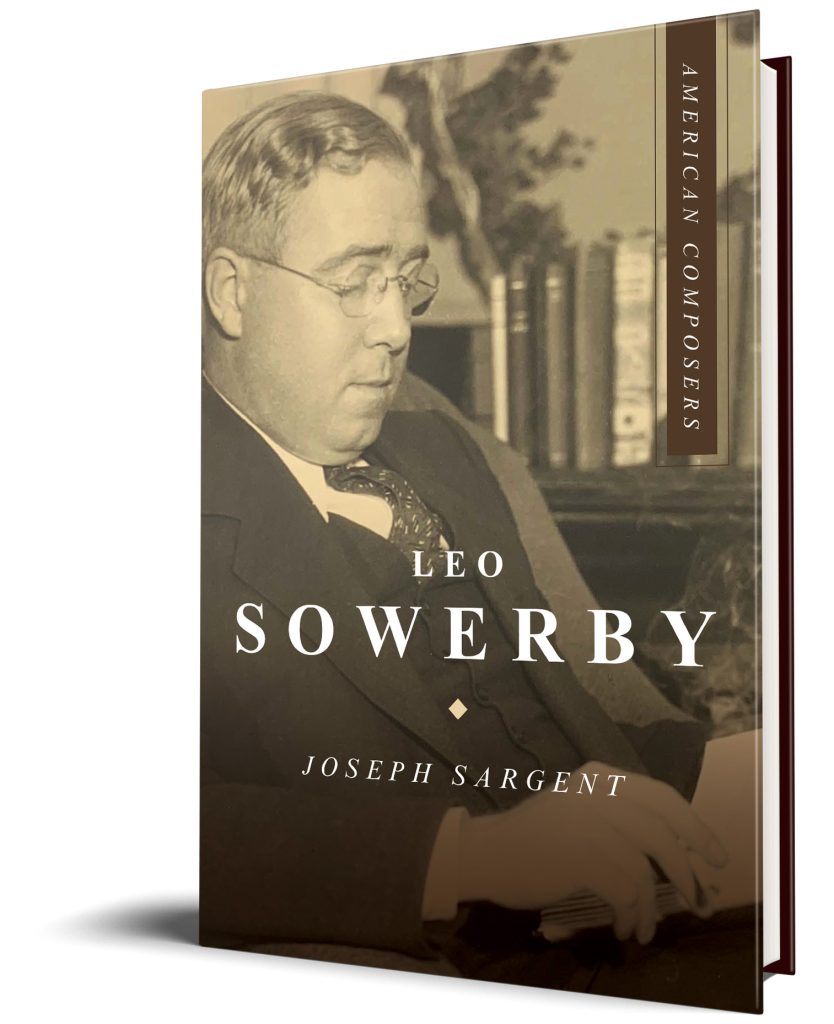Joseph Sargent, the author of Leo Sowerby, answers questions on his new book.
Q: Why did you decide to write this book?
During my graduate student years, I was a professional singer with the Choir of Men and Boys at Grace Cathedral in San Francisco. One of the composers we performed regularly was Leo Sowerby, and over the years I developed an affinity for his choral and organ music. But as I learned more about Sowerby, I was also struck by how little had been actually published about him. This is a man who in his own lifetime was repeatedly called “the Dean of American church music,” and who also had great success in the concert realm, but was now obscure in many ways. It seemed to me this was a problem that needed addressing.
Q: What is the most interesting discovery you made while researching and writing your book?
Researching this book helped me appreciate how truly prominent Sowerby was as a composer outside the sacred realm. During the 1920s and 1930s he was very well known in concert halls, not just in his native Chicago but nationally as well. He was involved in debates about the future direction of modern music, speaking repeatedly in print and in person about his perspectives. Although Sowerby’s opinions ultimately didn’t carry the day in terms of American musical directions, they remain important as testaments to his deeply held artistic priorities.
Q: What myths do you hope your book will dispel or what do you hope your book will help readers unlearn?
The primary myth I hope to dispel is that Sowerby was a mere specialist, in terms of being simply a church composer (with the implication that his music is therefore aesthetically inferior to “art” music). This is the music he’s best known for today, but the volume of his concert music is really very substantial—five symphonies, myriad concertos and symphonic poems, dozens of chamber works, keyboard sonatas, a couple jazz pieces, etc. It’s a repertory that can be hard to access, as much of it remains unrecorded (and indeed many works were never published in the first place), but it deserves greater recognition.
Q: Which part of the publishing process did you find the most interesting?
I enjoyed engaging with the peer reader reviews! It always takes resilience to absorb criticism of your work, but I ended up being very stimulated by the suggestions of my anonymous reviewers, and my book is better as a result. They forced me to think more critically for instance about questions of race and gender — although Sowerby was a white male, he had close interactions with women and minorities both personally and professionally, as well as with people whose views on race and gender would nowadays be considered very problematic. In today’s world, it’s important to address these issues.
Q: What is your advice to scholars/authors who want to take on a similar project?
I have often found it gratifying to investigate figures that have historically been marginalized, in one way or another. It can be easy to see music history as a game of winners and losers — the winners are those who gain lasting reputations and get discussed in textbooks and scholarship, while the losers are relegated to the sidelines. Nowadays we’re becoming more conscious about the standards we’ve used historically to judge the winners, recognizing the legitimate virtues of compositional ingenuity but also critiquing their contexts. As an author, contributing to these conversations can be very exciting.
Q: What do you like to read/watch/or listen to for fun?
When not working on Sowerby I am a scholar of Renaissance music, so I love composers from that era like Tallis, Byrd, Josquin, Victoria, etc. I’m also partial to the more modern English/American cathedral repertory, and I will listen to Beethoven any day of the week. As a reader, I enjoy everything from Victorian-era novels to fantasy fiction. Many years ago I received the deluxe three-DVD set of The Lord of the Rings movies as a Christmas present, and I watched them for twelve hours straight. As for other watching, my go-to program is The Great British Baking Show!

Joseph Sargent is an assistant professor of musicology at the University of Alabama.

